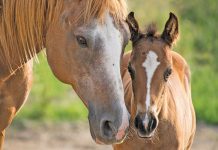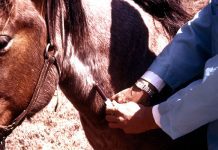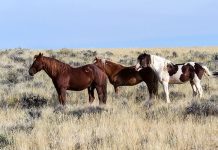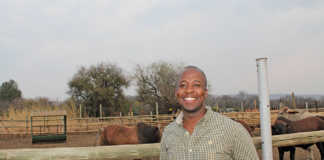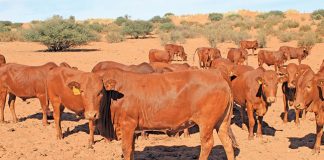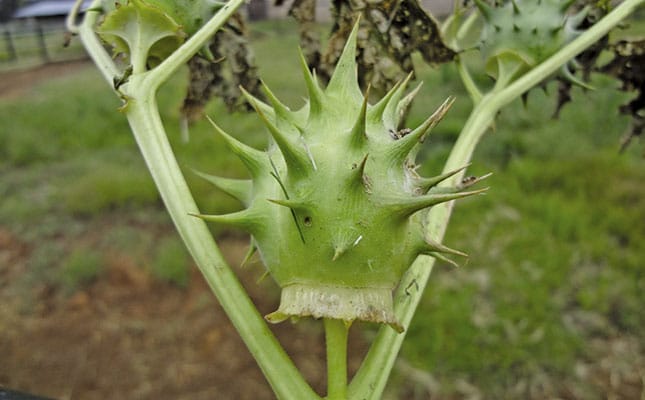
Photo: Kim Dyson
Jimson weed (Datura stramonium) is named after a case of human poisoning in Jamestown, Virginia, in the US, in the late 1600s, when soldiers ate the plant in a salad and became extremely ill. Known as ‘malpitte’ (mad seeds) in South Africa, this weed is not your horse’s friend – and it’s also dangerous to humans.
After all, this annual belongs to the Solanaceae – or deadly nightshade – family. All parts of the plant are toxic, but the highest amount of toxins are found in the ripe seeds, the leaves of young plants, dried leaves and stems.
Dried hay
When it comes to horses, dried hay may contain young Datura plants (Datura stramonium and D. ferox), so it is very important to check for weeds when filling teff nets. Because of the plant’s strong odour and unpleasant taste, animals only consume it when other food isn’t available.
Often there will be no obvious signs your horse has eaten this weed, except for the sudden appearance of the young plants on your muck heap.
The first physical signs that your horse may have eaten this weed are changes in its respiratory rate, gum and eyelid colour, and heart rate. Later symptoms include dry mucose membranes, acute gastric dilation, severe intestinal gas, refusal to eat or drink and no defecation or urination.
Datura intoxication
Horses that have eaten this weed have toxic liver dystrophy, cardiac lesions and necrotic processes in the kidneys. It also causes hallucinations and intoxication, with sometimes fatal consequences.
READ: When to call the horse vet
Very often a horse owner will say they thought a snake was in their horse’s stable at night as there were hoof marks up the walls. Then, after closer examination, the horse has been found to have eaten Datura.
Colic symptoms in horses after ingesting the weed can be moderate to severe and continuous. Your horse will paw at the ground and turn its head mainly to the left side of its stomach. It will also stand with its legs far apart as if trying to urinate.
There will be sweating, grinding of teeth, flared nostrils, high and low temperatures, then weak, soft heart rates (100 to 120 beats/minute), elevated respiration (50 to 60 breaths/minute) and then very shallow breathing. Often heave lines are evident on the rib cage.
In ancient herbal medicine, Jimson weed was used internally to treat epilepsy and ‘melancholy’. Externally, it formed the basis of ointments for burns and rheumatism. More recently, preparations from the plant have been used as ingredients in some asthma medicines. However, the plant is generally considered too toxic for medical applications nowadays.
Don’t try to treat this on your own. Let your vet know immediately, have your paddocks checked every week – and burn all weeds!


